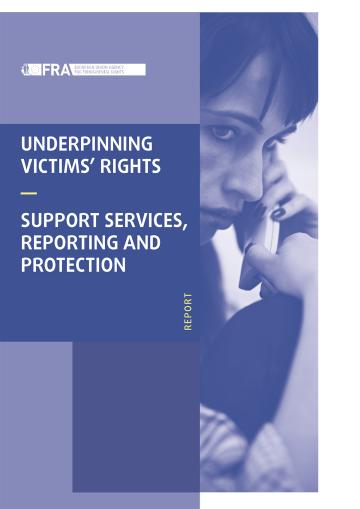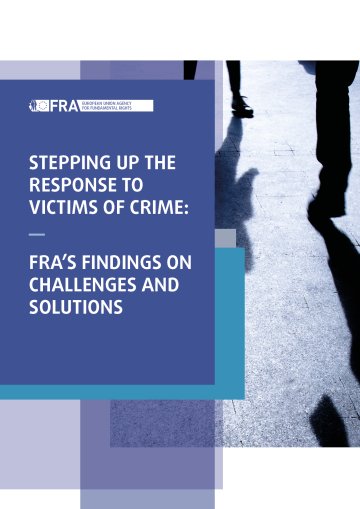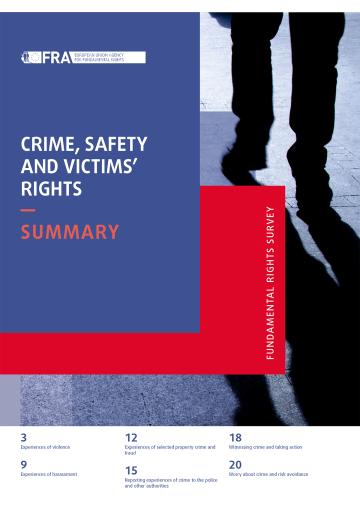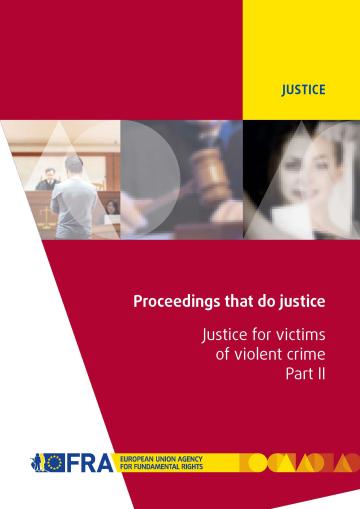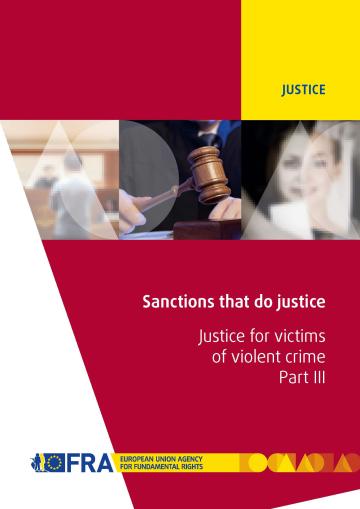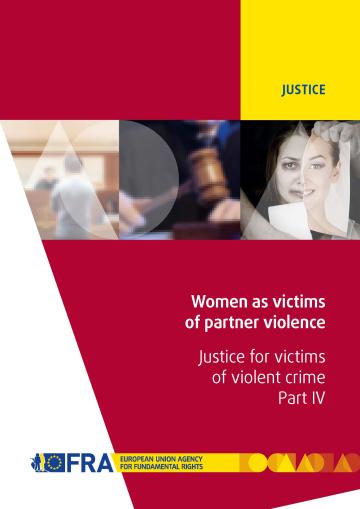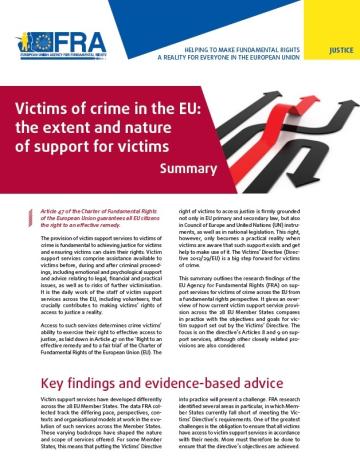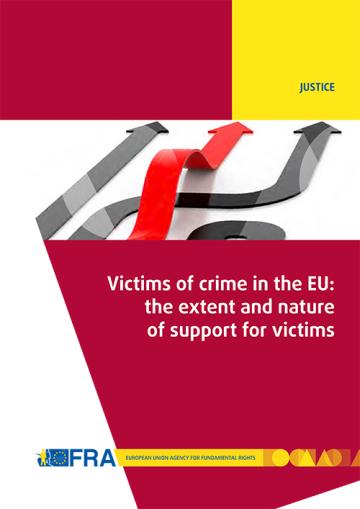Directive 2012/29/EU (the Victims’ Rights Directive) establishes minimum standards for the rights, support and protection of victims of crime. It represents a milestone in the development of victims’ rights. It defines the scope of support services, guarantees the right to effective protection against secondary victimisation and comprehensively regulates the measures required for this purpose. It also sets out a clear commitment to the necessity of a decision concerning a victim’s civil claims as part of the criminal proceedings.
European Union (EU) Member States’ effective implementation of the Victims’ Rights Directive is key to ensuring access to justice for victims of crime, as the EU Strategy on victims’ rights (2020–2025) underlines. Member States must adopt measures under the Victims’ Rights Directive to ensure that all victims, including vulnerable ones, can exercise their rights and hence gain effective access to criminal justice in practice. However, in some Member States, progress towards guaranteeing victims’ rights in practice remains slow.
In 2022, the European Commission adopted its evaluation of the Victims’ Rights Directive. This aimed to identify whether and to what extent the Victims’ Rights Directive has fulfilled its objectives. Where necessary, it suggests legislative proposals to further strengthen victims’ rights.
The evaluation report draws on, among other things, the lessons learned from the implementation of the Victims’ Rights Directive. The 2022 evaluation shows the directive’s added value.
However, the evaluation also points out that not all victims can fully rely on their rights. That is because some of the directive’s articles lack clarity and precision. More specifically, it says, shortcomings relate to victims’ access to information, support services and protection in line with their individual needs. In addition, it notes that victims should be able to take a more active role in criminal proceedings and have easier access to compensation.4 This would allow them to see that justice is done for them.
Accordingly, following the evaluation, the European Commission plans to propose revising the Victims’ Rights Directive in 2023.In support of the evaluation, the European Union Agency for Fundamental Rights (FRA) has provided written input to the Commission and made a number of interventions – based on its research evidence – during meetings of the Commission’s Victims’ Rights Platform.
The current report focuses on two areas that are key to the effective implementation of the Victims’ Rights Directive in practice. The Commission’s evaluation also addresses them. These are:
- support services for victims;
- protection of victims – from secondary and repeat victimisation.
The report also addresses a third area, which is partially addressed by the Commission’s evaluation and warrants further attention given the practical challenges in the context of implementation of the Victims’ Rights Directive by EU Member States; namely reporting by victims.
The report is based on evidence gathered through desk research in 27 Member States. The examples from different Member States are intended to be illustrative. They are selected to reflect the depth of information provided, geographical spread, and similarities and differences between approaches adopted.
